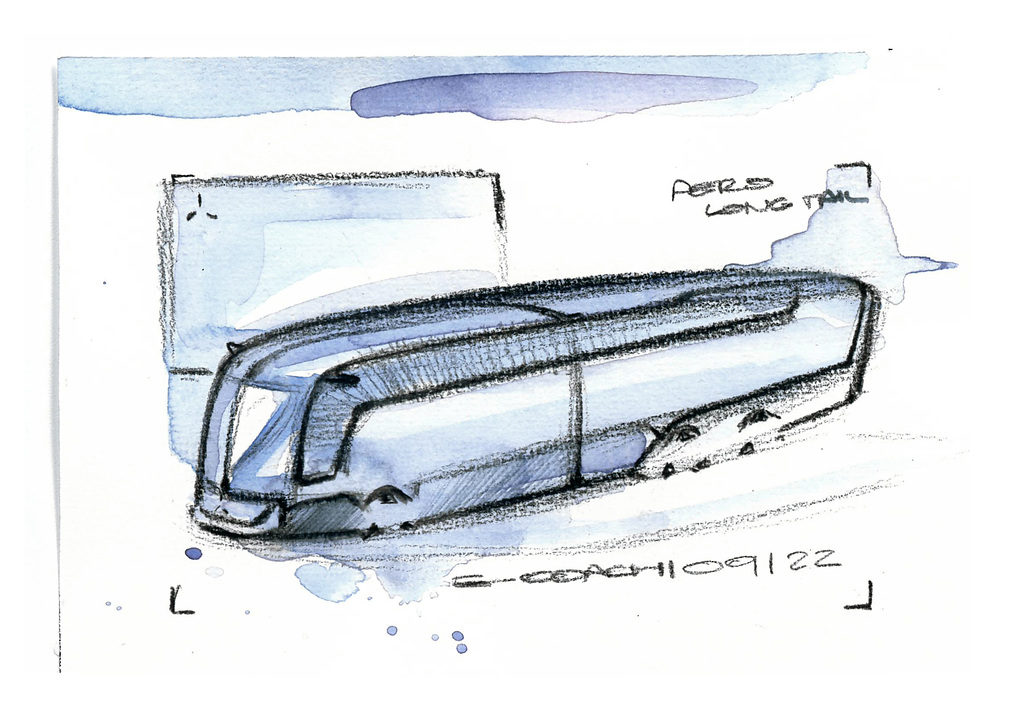Daimler targets offering electric coaches by end of decade
Daimler Buses intends to offer electric coaches with its Mercedes-Benz and Setra brands by the end of the decade.
The manufacturer has teamed up with research institutes and experts from the industry to form the Electrified Coach project (ELCH in short). The project is funded by Germany’s Federal Ministry for Economic Affairs and Climate Action.
Daimler notes the electrification of coaches is far more challenging than with buses, with requirements for long-range transport, flexibility in use, battery charging on the go, high payloads and the space required for passengers and luggage. It claims no manufacturer has yet succeeded in developing a battery-powered coach that can cover workable ranges as well as having an availability for a wide variety of operating conditions.
Michael Klein, Head of Product Development and Production Daimler Buses: “We are delighted to be the only bus/coach manufacturer able to bring our development expertise to the ELCH project. As a technological pioneer in the industry, we can deal with the topic both quickly as well as comprehensively and in a practical way.”
The objective of ELCH is the development of a modular drivetrain and two emission-free and practical demonstration vehicles in the next four years. They will then be tested under real operating conditions. Synergies with components from the Daimler Truck division will be taken into account.
Factors such as overall costs, environmental impact and possible integration into existing operating concepts of PCV companies will be incorporated into the results. Based on the concept evaluation, two prototype drivetrains will then be developed and integrated into the demonstration vehicles. This will enable testing under real operating conditions.
Daimler Buses aims to maintain passenger capacity, including the additional payload for luggage, with its design. Beside the drivetrain and battery technology, project partners are playing a role in aerodynamics and lightweight construction.
The profitability of the resulting vehicle concepts will also be assessed from the operator’s perspective and taken into account in the concept definition. The objective is to identify cost-efficient concepts for individual vehicles and entire fleets of electrically powered coaches for the various operating profiles.
Test drives on real customer cycles will also form the basis for the further development of the drivetrains.
Developing with FlixBus
Daimler Buses is the coordinator of the publicly funded project. Project partners are the Karlsruhe Institute for Technology KIT (ITIV – Institute for Information Technology); the University of Mannheim (MISES – Mannheim Institute for Sustainable Energy Studies); the Technical University of Kaiserslautern (iMAD – Institute for Mechanical and Automotive Design and SAM – Institute of Fluid Mechanics and Fluid Flow Machines) and Flix SE, the operator of FlixBus.
Flix will evaluate the operational characteristics of the projected solutions at an early stage. This should mean an assessment can be made at the midpoint of the project about the feasibility of switching to battery electric coaches. Flix will also be involved in the validation of the demonstration vehicles under real operating conditions. Flix has specified the use of alternative drives as an important part of its strategy toward further CO2 reduction. Accordingly, the company has a great deal of interest in coaches that can be deployed under the very challenging operating conditions typical of Flix.
